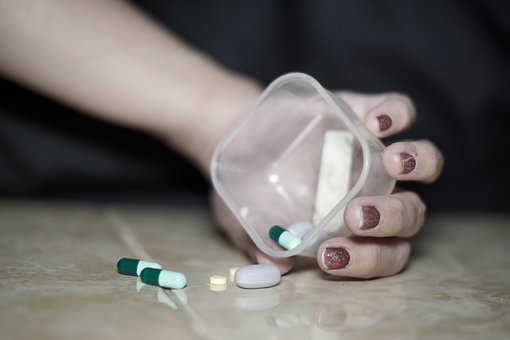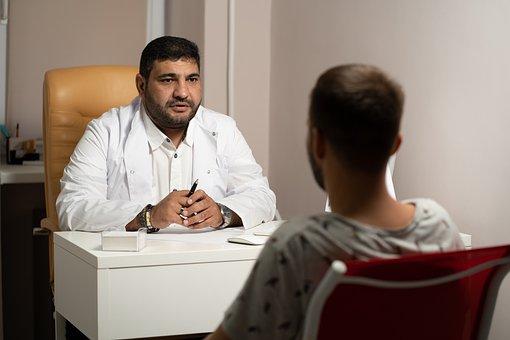When people think about drug rehab, they often envision a dark and dingy place where addicts go to detox and dry out. However, there is much more to the process of rehabilitation than that. To fully recover from addiction, it is crucial to understand all aspects of the rehab process.
This blog post will explore some common questions about rehab, such as what happens during treatment and what are the different types of programs available. By better understanding these things, you can be sure that you or your loved one are getting the best possible care for recovery.
Look into treatment options available.
Take the time to look into the available treatment options first. Deciding on the right strategy for recovery can be overwhelming – there are so many approaches to consider. From in-patient and outpatient care to holistic and 12-step programs, each option has merits, depending on an individual’s needs. The in-patient treatment providers behind changingtidesobx.com recommend that you opt for this option if you need intensive care, as the round-the-clock support and supervision provided can give you the best chance at recovery. On the other hand, outpatient facilities offer a more flexible approach and are ideal for those who can’t take time away from their daily lives. Look carefully at each one before committing to a path forward. After all, select the right plan that best suits your situation and goals. Researching carefully will set you up for a successful rehabilitative experience with long-term results.
Once you have chosen a rehab program for drug addiction, it is time to understand what the treatment plan requires. This includes attending therapy sessions, participating in group activities, or completing counseling assignments. Depending on your rehab needs, additional treatment options may also be available. For instance, if you are dealing with mental health issues such as depression or anxiety alongside addiction, therapy may be part of your treatment plan. Talk to your rehab provider about all the possibilities to ensure that you are getting comprehensive care. Be sure to ask questions if something is unclear so that you fully comprehend the program’s requirements. A successful treatment process depends on following a plan closely and understanding what is expected of you each step of the way.
In-patient treatment
In-patient treatment for drug addiction is an effective and comprehensive care option for individuals who require 24/7 care and monitoring during a health crisis. It provides a safe, secure environment free from distractions and triggers that can endanger recovery efforts. Furthermore, it involves comprehensive medical and therapeutic solutions to address substance abuse issues and promotes lifestyle changes that will lead to sustained sobriety. After treatment, the individual is provided with the necessary tools to transition back into their family and community. With proper monitoring, spiritual guidance, nutrition education, and other evidence-based practices, in-patient treatment has proven invaluable in helping those struggling with drug addiction get back on the right track.
Outpatient treatment
Outpatient treatment for drug addiction presents a viable solution for those struggling with this challenging condition. Specifically, having a robust support system at home can be helpful. It is financially advantageous because you won’t incur the costs of being hospitalized. It also allows you to remain close to your family and friends – an essential part of recovery. Additionally, such programs are often more flexible regarding scheduling appointments, making them easier to access regardless of your situation. Ultimately, outpatient treatment for drug addiction can offer a path toward long-term sobriety that honors practical concerns and emotional support.
Detoxification
Detoxification is an integral part of any successful rehabilitation process. It provides a foundation for sober living and healthy habits, helping to decrease cravings and the chance of relapse. During detox, the body is rid of drugs and alcohol, while supplemental vitamins, minerals, and herbal support ensure that essential nutrients are available within a safe environment. This step helps reduce withdrawal symptoms as it prepares the body with therapeutic measures, introducing physical and emotional stability. A successful detox can help lead to successful long-term recovery and sustained sobriety.
Therapy
After detox, the work for those who have gone through addiction truly begins. Individuals need to explore why and how they became addicted to take control of their addiction and move forward with recovery. Through therapy, patients can utilize techniques to better prepare them for coping with cravings, triggers, or relapse. For instance, cognitive behavioral therapy (CBT) can help individuals recognize the underlying root causes of their addiction and develop new habits, skills, and coping mechanisms that will serve as an alternative to substance use.
Counseling methods that examine both psychological and circumstantial causes of addiction reveal essential insights that can help people surrender to their addiction instead of feeling controlled by it. In many cases, talking openly and honestly through group or individual therapy can have as much, if not more, beneficial than medication alone. By examining the root cause of the addictive behavior, each person has an opportunity for a successful recovery journey that centers around understanding one’s own story.
Aftercare planning
By having a clearly defined aftercare plan in place, individuals can ensure that they maintain their sobriety long after leaving treatment programs. Aftercare planning often includes regular meetings with an addiction counselor and possibly individual or group therapy. Regular meetings are essential to review progress and develop strategies for avoiding relapse. It is also vital to build up a robust support system within the community, which can include family, friends, or addiction support groups – be connected with a sound support system that will understand the requirements of staying sober and offer emotional support should relapse become a risk. An effective aftercare plan can significantly reduce the chances of relapse while providing peace of mind knowing that resources are available should a problem arise.

The journey to beating drug addiction isn’t easy, but the rewards are worth it. There are many treatments and programs available to help persons with addiction. Whichever path you choose, developing an aftercare plan for drug addiction relapse prevention and continued sobriety is essential. With the right tools and support system in place, anything is possible – and with courage and determination, anyone can reclaim their lives from substance abuse.

